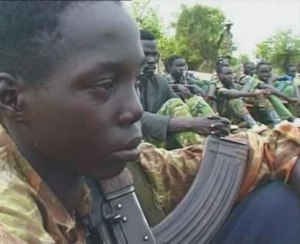Law
watch
Child
abuse and UN
UN
expert launches action plan for systematic worldwide monitoring
and reporting of child abuse
United
Nations Secretary-General Kofi Annan's special envoy for
children and armed conflict (CAAC) launched an action
plan for systematically monitoring and reporting of child
abuse in situations of armed conflict, or in "situations
of concern," with a view to triggering a strong international
response.
In
the past several years, CAAC issues had benefited from
increased visibility and advocacy, while key regional
and multilateral organizations had adopted many CAAC norms
as their own, Special Representative Olara Otunnu told
a news conference at which he discussed Mr. Annan's report
to the Security Council.
The
estimated number of child soldiers had declined to 300,000
from 380,000 in the last 18 months, Mr. Otunnu said. "In
spite of these advances, the situation for children remains
grave and unacceptable on the ground," he said. "The
key to overcoming this gulf lies in instituting an international
compliance regime."
 The
regime would list all offending parties, whether from
the government or rebel side, in all situations of concern,
"whether or not those situations are on the agenda
of the Security Council," Mr. Otunnu said. He noted
that his mandate did not define the term "armed conflict,"
adding that being listed in the report "should not
be construed as a legal determination that there exists
a situation of armed conflict within the meaning of the
Geneva Conventions and their Additional Protocols."
The
regime would list all offending parties, whether from
the government or rebel side, in all situations of concern,
"whether or not those situations are on the agenda
of the Security Council," Mr. Otunnu said. He noted
that his mandate did not define the term "armed conflict,"
adding that being listed in the report "should not
be construed as a legal determination that there exists
a situation of armed conflict within the meaning of the
Geneva Conventions and their Additional Protocols."
Violations
included recruiting children as soldiers, abducting, maiming,
or killing them, subjecting them to rape and other sexual
violence and attacking schools and hospitals, he said.
For widespread and unacceptable patterns of violation,
the Security Council should take such measures as imposing
travel restrictions on leaders, excluding them from future
governance structures or amnesties, arms embargoes and
military assistance bans and restrictions on the flow
of financial resources, Mr. Otunnu said.
Other
"destinations for action" would be the General
Assembly, the Commission on Human Rights, the International
Criminal Court, regional organizations and, as the first
line of response, the national governments within whose
borders the children are endangered. The report updates
developments in nine countries on the Security Council's
agenda, including Cô
te d'Ivoire, the Democratic Republic of the Congo (DRC),
Iraq, the occupied Palestinian territory and Sudan. Eight
others were either not on that agenda or were in other
situations of concern. They are Colombia, Myanmar, Nepal,
Northern Ireland, the Philippines, the Russian Federation,
Sri Lanka and Uganda.
Source:
UN News Centre
Photo:
UNICEF